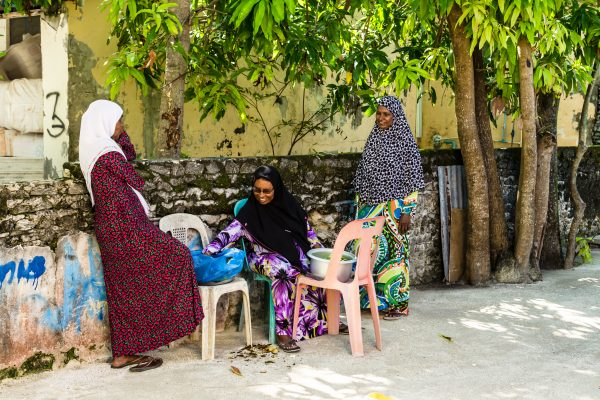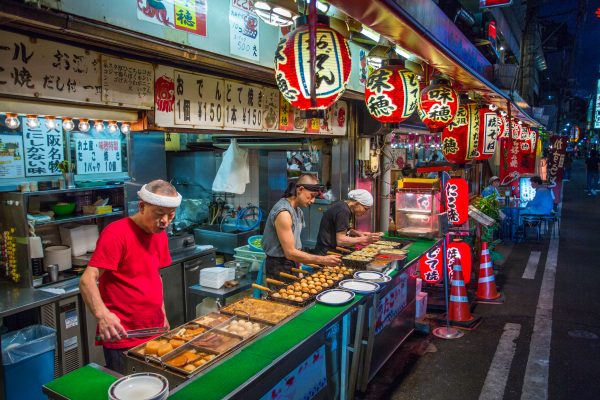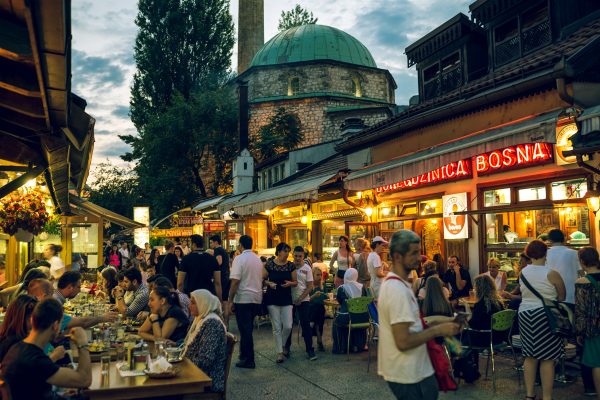(This article is a humorous work. Read with a pinch of Garam Masala.)
You’re about to read the story of the day I became an adult which is also the day I learnt people (most of them) should not be trusted. This story involves two protagonists: me and my true love – The biryani.
I don’t think I will ever be able to forget that day. It was a Saturday, and like all Saturday’s spent in Ramadan, I wasn’t in the best of mood. Those who grew up in Europe or America might be able to relate to what I am saying. If you’re a teenager and fasting on a weekend, the only thing that ends up happening is that time doesn’t go by. It becomes worse throughout the day as you end up smelling all the food your mom is cooking, making your fast a miserable one. Ramadan weekends also meant that after a whole week spent at school, when you finally had some free time to play outside, you were just too tired to even turn on Pro Evolution Soccer (during those days only amateurs played Fifa) on the PlayStation so going out to kick a real ball was never on the cards. On top of that, weekends meant having to break the fast at the mosque, which technically meant eating about 45 minutes after iftar time (+/- 20 min depending on who was leading the prayer). And obviously, since I grew up in an African Khoja community, going to the mosque meant no chances whatsoever of opening my fast with my beloved Biryani.
We left the house early that day. The mosque was about 45 minutes away from our neighbourhood. There was little to no trafic so we reached on time (which was not often the case. I hope my parents don’t read this). After the lecture, during Jamat prayers, while standing in Qiyam, everyone’s stomach were growling in unison, and I was trying to figure out which of my two neighbours was more hungry. After the Isha prayers everyone sat on the ‘Sufra’ staring at the door from which food was supposed to come.
This is when it happened. While I was sitting on the floor trying to figure out which ‘achar’ I was going to pour in my plate, someone from the crowd had mentioned my beloved’s name. Someone had dared mentioning its name in front of me while I was fasting! I turned back and overheard a conversation. : ‘I heard there is Biryani on the menu today’ a man said. Now all of you who visit mosques on a regular basis know very well that there are only a handful of people you can actually trust. Like any other concerned member of the community I decided to take out my ‘Can I trust this guy checklist’ from my pocket. This is what it looked like:
- Does he have a beard (Yes)
- Did he come on time (Yes)
- Did he pray Jamat (Yes)
- Was in the first row (Yes)
- Did he shake Molana’s hand (Yes)
- Does he have an Aqeeq (Yes)
- Does he have a firoza (optional) (Yes)
- Did he come for Quran Khani (I don’t know I wasn’t there)
The guy met 7 out of 8 criteria! A score I hadn’t seen in a long time in a mosque. Such a score only meant one thing. My love and I would be united again on this auspicious Ramadan night.
If you’re not from the Indian subcontinent, you probably can’t get the joy I felt when the thought of ‘the’ biryani came to my mind. But to be fair to non-desi readers, I’ll try to give you a gist of what biryani means to us. If you’re Iranian, I’d say the equivalent of biryani (in terms of pleasure) would be a ghormeh sabzi. Just the right kind. Not too sour, meat perfectly done, melting in your mouth, and cooked with fresh herbs. The kind of ghormeh sabzi that once cooked, can be smelled in the entire neighourhood. If you’re Lebanese, I’d say biriani is a combination of kibbeh nayyeh, shish taouk, tabbouleh and arayes in a single mouthful. And if your non-Arab and non-Desi, you’ll just have to use your imagination!
The news of Biryani on the menu got me excited for two reasons. First I was going to have a biryani, the only dish I can say I fell in love with at first sight (and bite). Second, I was finally going to eat something I could actually pronounce (and digest) properly. No ‘Mandazi’, ‘Kuku paka’, ‘Kabaru’ or any Swahili dish pretending to have Indian origins. Finally some food that didn’t need all of Africa’s coconut milk reserves to be cooked. My mouth was watering. I looked at my fingers and told myself ‘ I don’t care who’s going to stare at me today – I am going to eat with my bare hands and eat like there’s no tomorrow.
It took more time than usual before I got united with my love. It’s as if the volunteers serving the food were aware of this epic love story taking place in the mosque and wanted to make the pleasure last. Finally, a dish was put on our side. The dish didn’t look very fancy. There was plain rice, and on top of it, there was a thick sauce, made with lamb or beef. It pretty much looked like a regular ‘Salan/Chawal’ (Rice/curry) combination, except they were served in one dish, rather than separately. People next to me started pouring themselves and I kept waiting for the moment when my eyes would meet their flavourful soul mate.
After a while, when everyone had already started eating, a brother next to me came inquiring:
‘Reza, you’re not eating? Everything is ok?’
I smiled, and with all the confidence in the world said:
‘Me? Yeah…! See, I prefer waiting, you know, for real food.’
‘I don’t get it’ the man politely replied.
‘Don’t you know there is biryani on the menu today!’ I said excited of being the one revealing such important news.
‘Yes – And don’t you see the biryani dish in front of you ? Perhaps, there no more meat, let me get a fresh one for you.’
‘Euh… That’s biryani?’
‘Yes. That’s Khoja Biryani. That’s how we eat it in East Africa’.
The pain was too much to handle. I felt as if I was in one of those Indian movies, where the protagonist is waiting in a hospital room and suddenly, the famous red light shining above the entrance of the operation block turns off and the surgeon walks out. I pictured the doctor walking towards me, trying to figure out how to announce me the unbearable: ‘We tried our best. But your biriani couldn’t make it.’ My tears started to pour and I ran inside besides my biryani’s bed. Staring at its potatoes and grabbing its pieces of lamb meat, I whipped and whispered ‘Nahin! This cannot be’.
Let’s be honest. I am a khoja myself. I love Khojas from Africa. Some of my best friends parents all migrated from Dar es Salaam, Nairobi and Mozambique. No one can deny the fact that they have been pioneers in establishing communities wherever they went (I know all East African Khojas must be feeling great right now reading this, but don’t smile too much, the punch line is coming).
Despite all these achievements; despite being experts in programming events and making sure Dua-e-Kumail starts at 7.43PM (+/- 36 seconds) and not at 7.45; despite holding PhD’s in how to make everyone sit in straight lines while listening to Majalis; despite having authored world acclaimed textbooks on how to organize Ziyarat, Hajj and Umrah trips with people joining from all parts of the world; despite all of that, African Khojas have failed miserably (sorry for the honesty) when it came to preserving the sanctity, the holiness, and the sacredness of ‘The biryani’. I’ve heard many excuses as to why they allowed a perfectly layered and heavenly-spiced dish to evolve into this chaotic and unaesthetic superposition of curry and rice. None of these excuses were able to justify this horrible tragedy. If the international community wasn’t busy fighting over petty issues in the Middle East, this probably would have been declared a genocide in international courts.
But I guess it’s too late now. The harm is done. There are too many households out there committing this injustice of attributing this godly given name of biryani to a regular curry over rice dish. What is even more depressing is that this injustice has been passed on from generation to generation. I‘ve even met some East African Khoja families who, unfortunately couldn’t transmit the Guajarati language to their kids, but still managed to teach them how to perpetuate the violation of ‘Biryani rights’.
Like all other bad days, this one too passed. I remember having reached home and told my parents about it. While most kids experience their first tragedy when coming to terms with the fact that Santa doesn’t exist (I hope no kid is reading this), I somehow entered adulthood absorbing this not so bitter but extremely flavourless truth.
You all must be wondering how I was able to come out of this depressing time and experience life again. The answer is simple. A week after this incident, weakened by this painful realization, I came out of darkness when my eyes gazed towards a shining light that brightened my horizon. I followed that silver lining and found myself in our kitchen. There, standing next to the stove, I found myself admiring a masterpiece. Slowly and gently, following it’s own destiny, a flawless and divine biryani was on the making. I opened the lid of the pan and experienced a spiritual ascension towards higher skies. Every time I contemplated the light radiated by those colourful rice grains, I would close my eyes in total submission and admiration over this manifestation of God’s divine nature. With each and every breath I was taking, the biryani’s identity engulfed my spirit. Standing over the stove with a rosary in hand, the only thing I could whisper all night was a famous verse from the Quran:
“So which of the favours of your Lord would you deny?”





